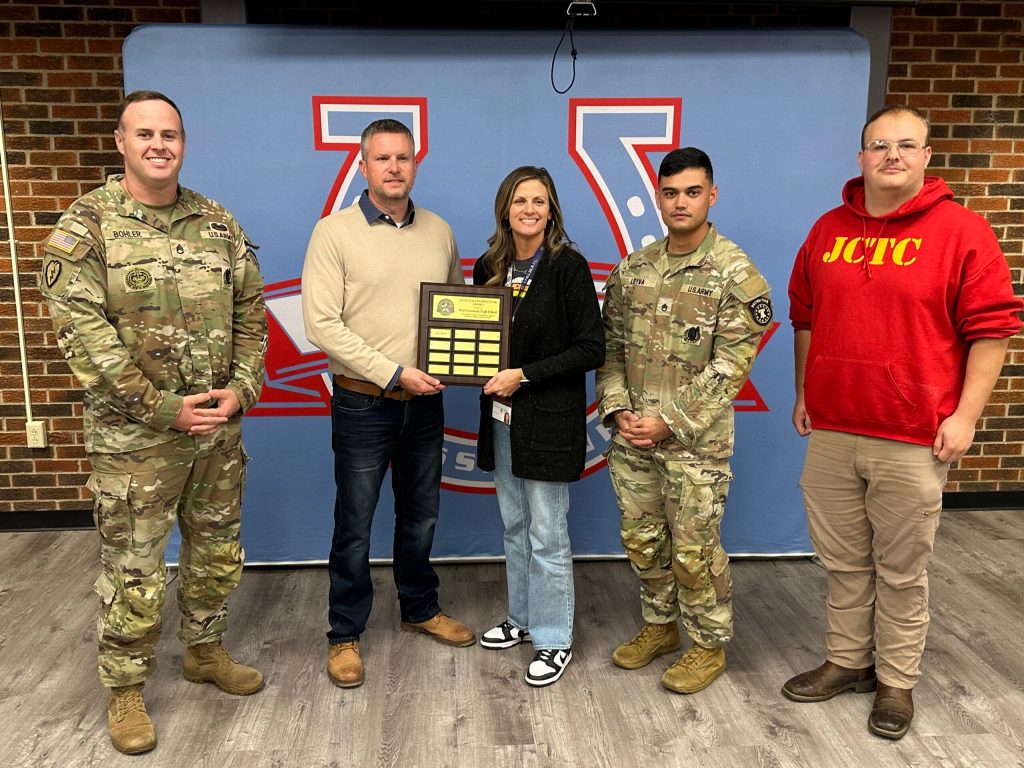West Jessamine High School receives Purple Star recognition
Published 12:42 pm Friday, November 22, 2024

- Veterans Photo 1: Jennifer Andrews poses with Principal Brady Thornton, and military service members from the community. (Photo Submitted)
|
Getting your Trinity Audio player ready...
|
Staff Report
On Wednesday, Nov. 13, West Jessamine High School (WJHS) received the Purple Star Award.
Trending
Principal Brady Thornton welcomed guests and gave opening remarks for the ceremony before WJHS Youth Service Center Coordinator accepted the award for the school and thanked Purple Star officials for the recognition.
Andrews has a degree in social work and has worked with veterans and their families in other positions prior to working in JCS. She is the person who took the initiative to submit the award nomination for West High. According to individuals at the district, supporting veterans and their families is something that means a lot to Andrews personally.
After the ceremony, West Jessamine High School published a Facebook post that read, “We’re grateful for this honor, Mrs. Andrew’s leadership, and will continue to provide resources and support to those who serve our country and their families.”
The purple star award designation is a state-sponsored recognition for individual schools’ dedication and support of military-connected youth. Its mission is to instill a sense of connection and strengthen resilience within Kentucky’s military-connected youth. Schools must complete four requirements to receive the Purple Star Award including designating a Purple Star Liaison who works in the school building, attend the self-paced online training “Military Youth in Kentucky”, host at least one military recognition event(s) or activity(ies), and create a resource page on the school website for military families.
Schools awarded the purple star designation lets military-connected students and families know, whether they are active duty, national guard, reserves, or veterans, that their school is dedicated to helping their child gain the educational and social-emotional skills necessary to be in college, workforce, and life ready. The program started in Ohio in 2017 and is supported by the US department of defense, military child education coalition, and the military interstate children’s compact commission.
Currently, 41 states across the United States implement the program in their schools and districts.





